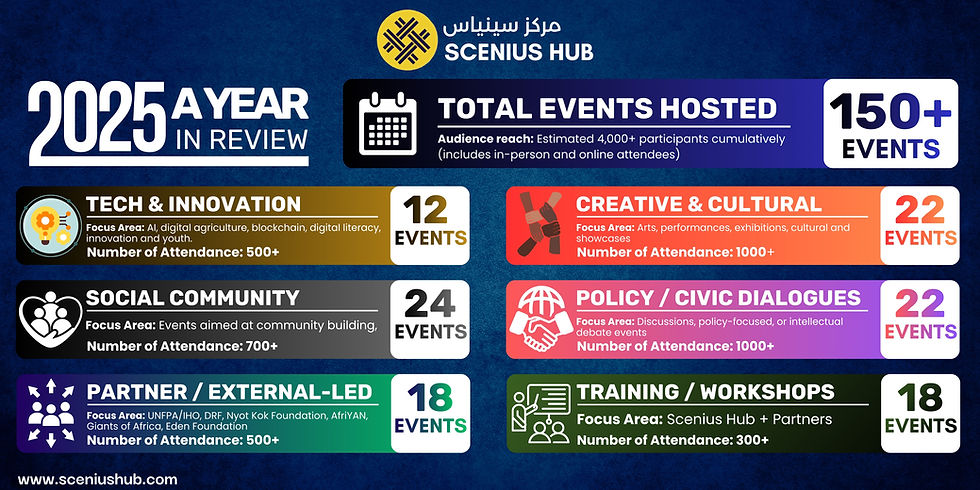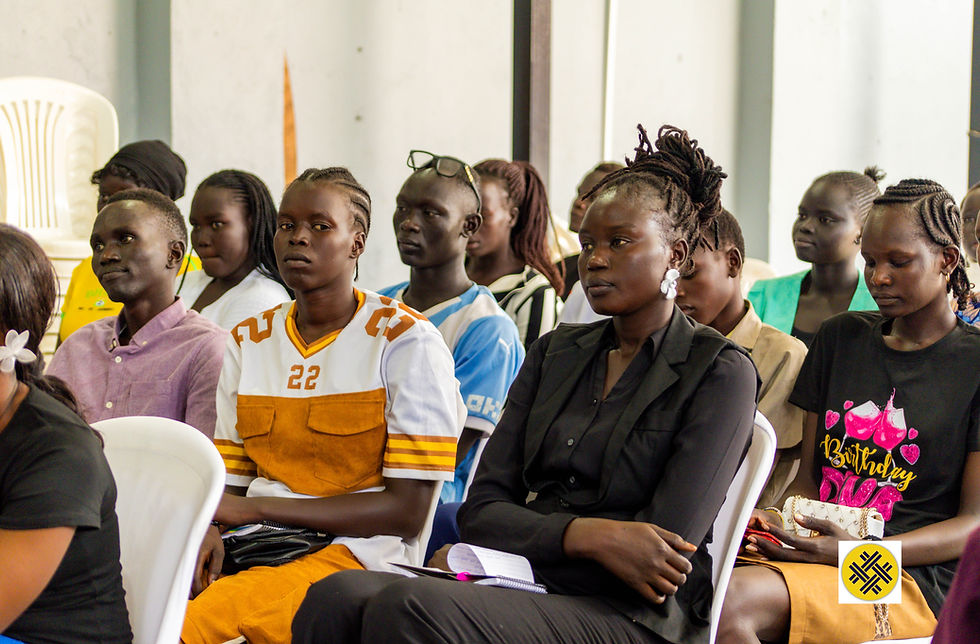Scenius Hub & The Revival of Karaoke Nights: A Community's Journey
- Nelson Kwaje
- Jul 31, 2024
- 3 min read
The term "karaoke" originates from Japan, combining "kara" (empty) and "ōkesutora" (orchestra). This popular form of entertainment involves singing along to recorded music using a microphone, with lyrics displayed on a screen for guidance. First emerging in Japan in the 1970s, karaoke has since become a global phenomenon, enjoyed in various settings, from bars to private parties and dedicated karaoke venues.

Juba has a rich history with karaoke, which has seen a colourful revival in recent years. My first encounter with karaoke in Juba was at Logali House, a famous historical hotel in Juba that peaked in the post-independence years between 2012 and 2018. The venue was a vibrant mix of journalists, aid workers, and well-traveled South Sudanese diaspora. When Scenius Hub started hosting karaoke nights, it initially drew this same crowd. However, to sustain the activity, attracting new participants and encouraging those with prior experience to join in and adapt was essential.

Scenius Hub Karaoke nights followed a natural progression. Initially, it attracted a solid base of experienced karaoke enthusiasts who had sung in South Sudan or elsewhere. These early adopters made karaoke a habit, using their confidence to inspire others. Over time, this led to a more diverse and vibrant community.

Jodi Akuach and Adau Garang, two professional models, have found the karaoke experience at Scenius Hub to be immensely rewarding. Adau shared, "We're here at Scenius Hub every Friday for karaoke, and it's an amazing experience with the people around and the fun we have here. We have everything we need, from drinks to great music. If you love singing, this is where you belong. Join us!"
Another notable group includes musicians and aspiring singers using karaoke as a platform to build their confidence. Joseph and Isaac, South Sudanese returnees who fled Sudan due to the recent war, are prime examples. Isaac recalled, "The first time I stood on the karaoke stage, I was extremely nervous. But the second time, it felt much better. Through these performances, I discovered courage. Each time I went home, I wrote something new, fueled by the confidence I gained from my performances." Joseph echoed similar sentiments, highlighting the overwhelming support from the community.

The largest group at Scenius Hub's karaoke nights comprises newcomers experiencing karaoke for the first time. Initially shy, they gradually find their voice and take the stage. For them, karaoke represents breaking many barriers. Sarah Daud and Khadija Salah, part of a community recently arrived from Sudan due to the war, are such newcomers. They discovered the Hub through the Long Academy training and have been regular attendees since.
Sarah shared, "Karaoke at Senior's Hope is an inclusive platform where anyone with a talent can showcase it. Whether it's singing, dancing, or other talents, everyone gets their moment in the spotlight. Initially, I was nervous about performing, but seeing so many young, enthusiastic individuals made me feel at ease. Now, every Friday, I look forward to attending the karaoke nights. I enjoy watching the performances and singing my favorite songs."

Khadija added, "Initially, I was apprehensive about performing, but the support from everyone was overwhelming. Although there were language barriers, with some songs in English and others in Arabic, this diversity only added to the fun. Karaoke allows us to celebrate our differences and come together as a community."
Juba's karaoke scene has evolved, with multiple venues offering this entertaining experience. Scenius Hub's karaoke nights, which are only five months old, have already attracted significant attention. The dim lights, screen, microphones, and speakers can make anyone feel like a star, even if it's their first time on stage. The revival of karaoke in Juba has provided a platform for entertainment and fostered a sense of community and togetherness.




Comments